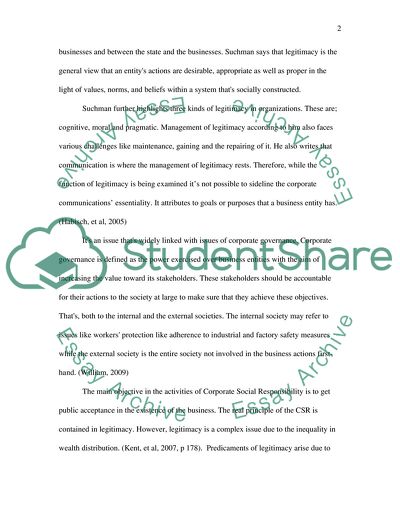Cite this document
(“Legitimacy Theory In Brewing And Hotels Sector Essay”, n.d.)
Legitimacy Theory In Brewing And Hotels Sector Essay. Retrieved from https://studentshare.org/law/1551681-legitimacy-theory-in-brewing-and-hotels-sector
Legitimacy Theory In Brewing And Hotels Sector Essay. Retrieved from https://studentshare.org/law/1551681-legitimacy-theory-in-brewing-and-hotels-sector
(Legitimacy Theory In Brewing And Hotels Sector Essay)
Legitimacy Theory In Brewing And Hotels Sector Essay. https://studentshare.org/law/1551681-legitimacy-theory-in-brewing-and-hotels-sector.
Legitimacy Theory In Brewing And Hotels Sector Essay. https://studentshare.org/law/1551681-legitimacy-theory-in-brewing-and-hotels-sector.
“Legitimacy Theory In Brewing And Hotels Sector Essay”, n.d. https://studentshare.org/law/1551681-legitimacy-theory-in-brewing-and-hotels-sector.


